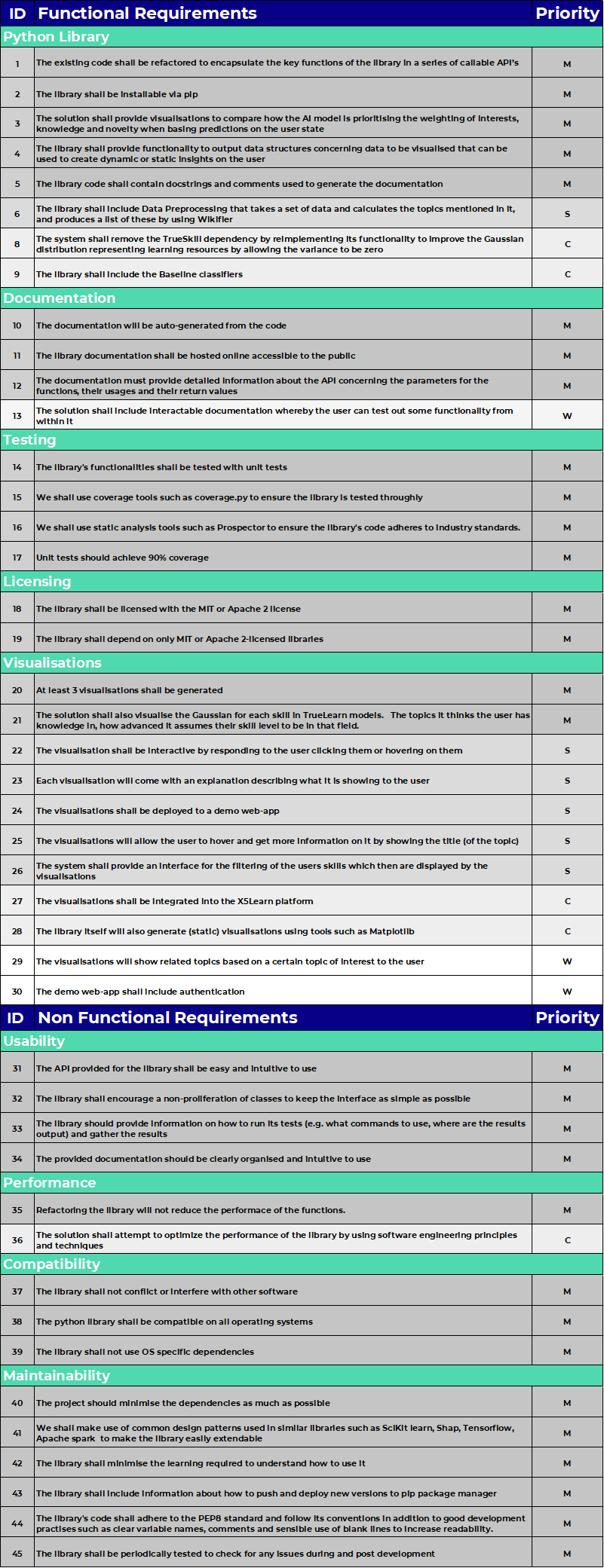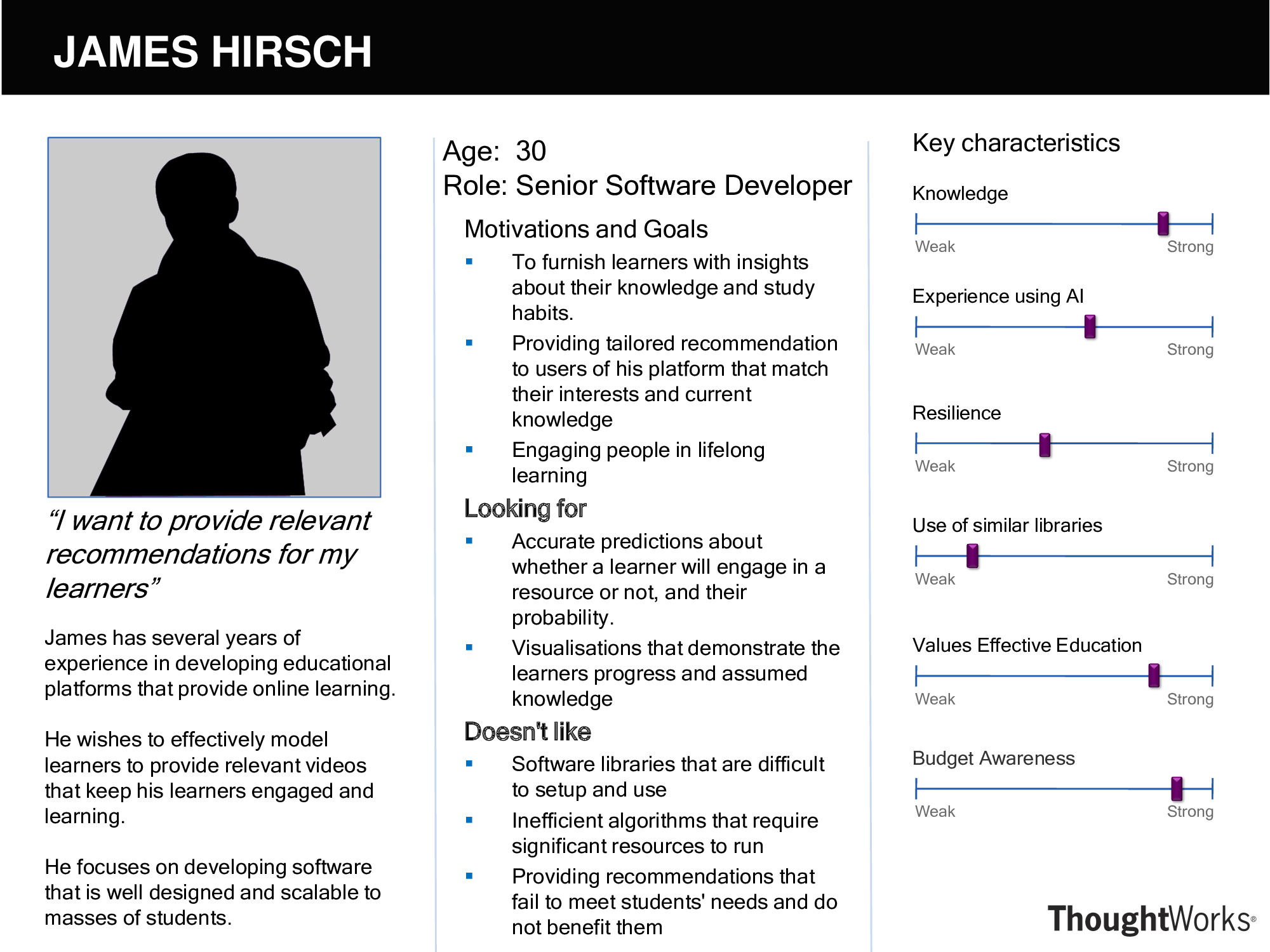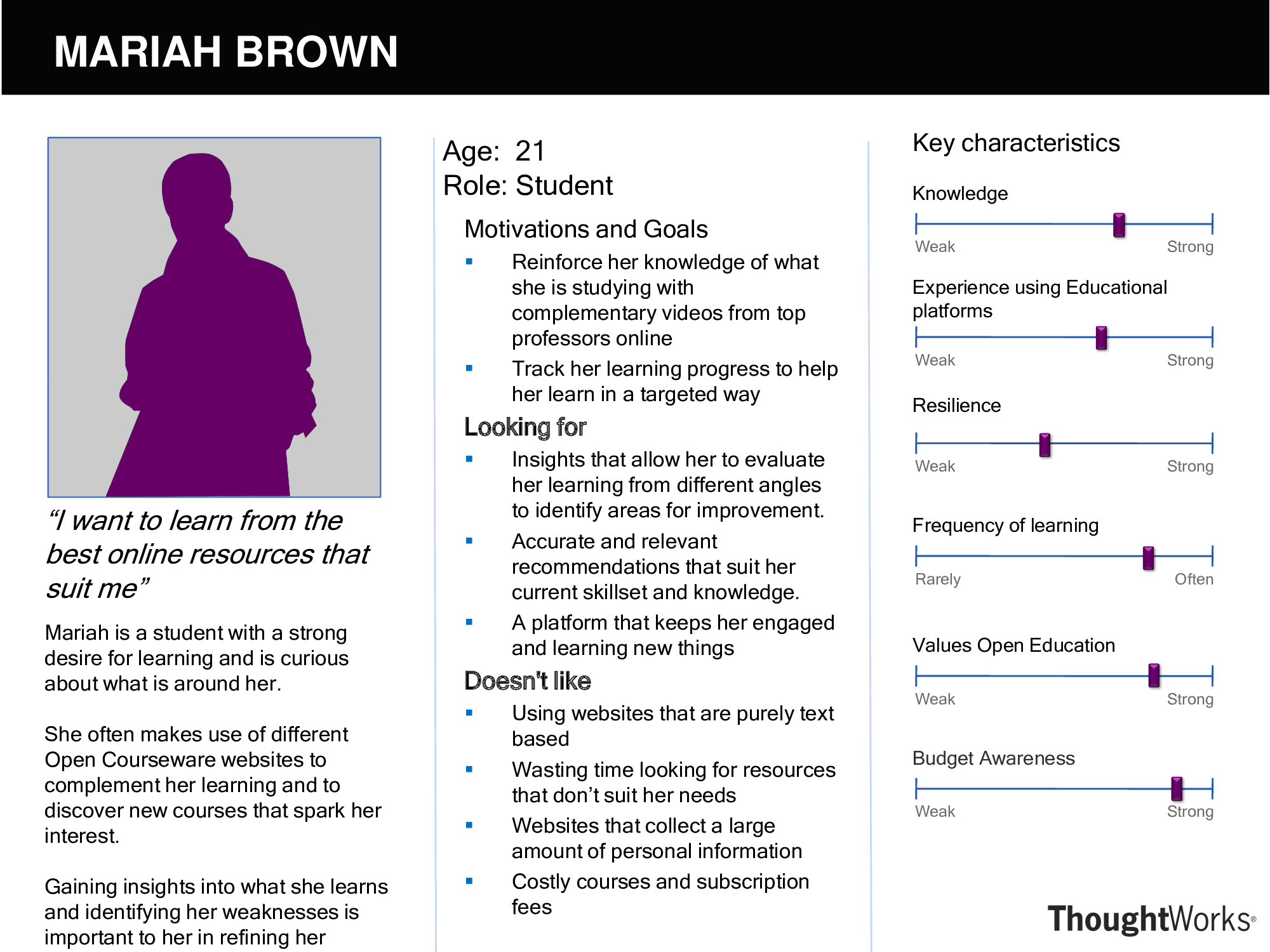Project Background
Advances in computer assisted learning systems, and the wide availability of open educational resources today lay the foundations for providing cost-effective high-quality education to the masses. One of the use cases of this technology is to create a lifelong learning recommendation system that accounts for a wide range of factors such as the learners background knowledge or the novelty of the material whilst efficiently maintaining this information for long periods of time (ideally, a lifetime) [1].
This is where the idea for TrueLearn originated from, to create a family of Bayesian algorithms designed to model and predict learner engagement with educational resources in a transparent and scalable way. The algorithms transparency comes from its privacy centric nature as it doesn’t need to store any information about past learning history to accurately predict future engagement. It can be quickly scaled to masses of learners as training takes minimal resources and can be conducted solely in the browser.
The purpose of developing TrueLearn as a Machine Learning library is to provide a strong foundation for its use and to allow for future expansion by providing an easy-to-use API that follows conventional design patterns and maximises performance. This library also aims to aid the learner in their journey by providing visualisations that show how their knowledge has changed overtime.
[1] S. Bulathwela, M. Perez-Ortiz, E. Yilmaz, and J. Shawe-Taylor, “TrueLearn: A Family of Bayesian Algorithms to Match Lifelong Learners to Open Educational Resources,” Proceedings of the AAAI Conference on Artificial Intelligence, vol. 34, no. 01, pp. 565–573, Apr. 2020, doi: https://doi.org/10.1609/aaai.v34i01.5395.
Partners
Our Partner for this project is the Knowledge 4 All Foundation where we are working with Professor Sahan Bulathwela. The foundation focuses on two main activities: The first being pioneering Machine learning techniques such as pattern analysis, statistical modelling, and computational learning; the second being transforming these methods into technologies for large scale applications in Open Education [2].
[2] Knowledge 4 All Foundation, “Overview | Knowledge 4 All Foundation Ltd.,” K4all.org, 2023. https://k4all.org/about-k4a/ (accessed Mar. 26, 2023).

Project Goals
The main two goals of this project are to:
- Develop an extendable performant python library that encapsulates the existing functionality of TrueLearn whilst also following design conventions used by other popular machine learning libraries such as Sci-Kit Learn.
- Create visualisations based on models of the learner’s knowledge and interests from their engagement with educational resources.
Requirements
Requirements were gathered through a series of rounds with the client. Initially we drafted a MoSCoW list based on our understanding of the project which we refined repeatedly with the client in further meetings to ensure the projects deliverables were well understood.
The result of this is the following prioritisation:


Personas


The two main category of users of TrueLearn will be software developers looking to integrate the library into their educational recommendation systems, and learners to track their knowledge and progression provided by the visualisations.
When designing the library, we wanted to ensure that it catered for a wide range of developers, not just those with past AI experience. This is why we have specifically thought about how to make it as easy to use as possible by following programming conventions and specific style guides such as PEP8. Accessibility was also important, with TrueLearn having the MIT license any developer can harness its power to provide effective learning to their users.
Whilst these are the two main users, our library lays the foundation for greater research into the field of AI in education by providing an extendable platform which removes the need for tedious boilerplate. Instead, the focus can be placed on developing new models that provide better predictions based on different factors.